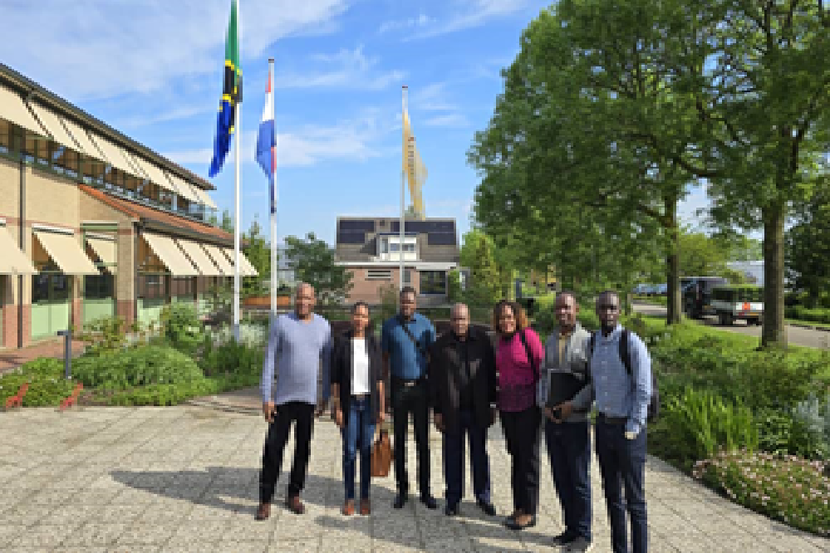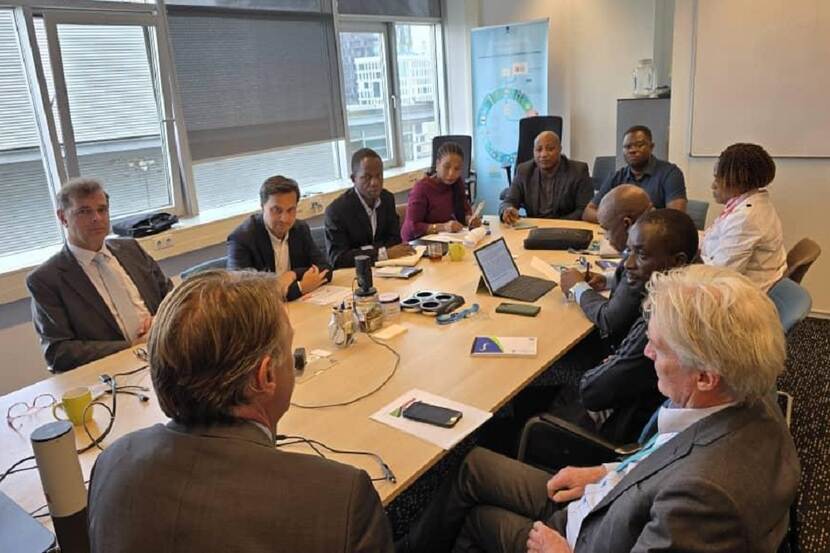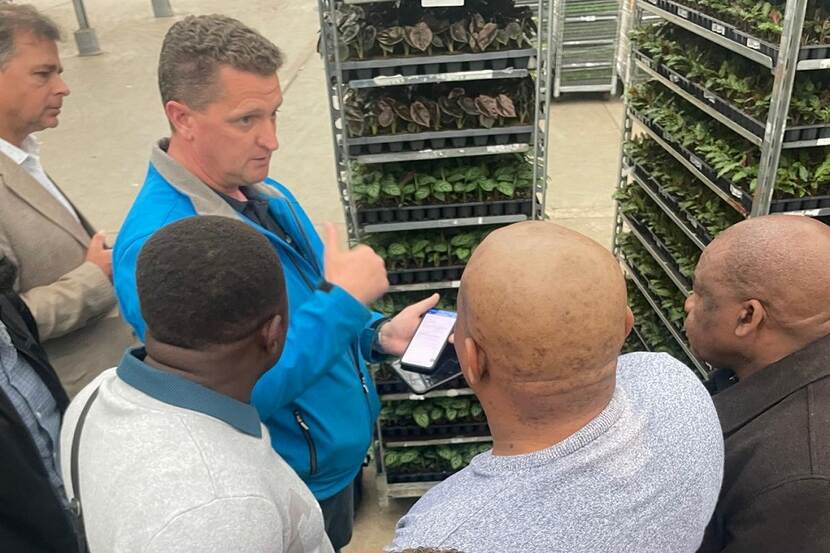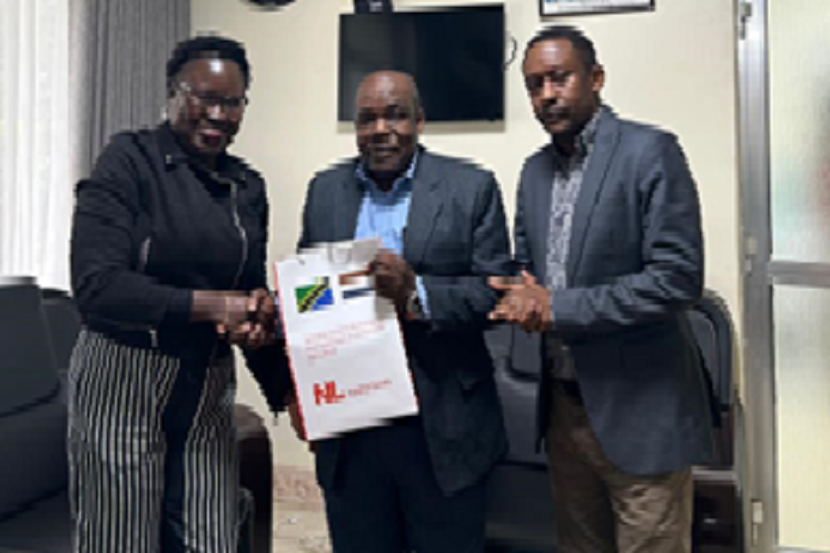Bridging Borders: Tanzania Explores E-Cert Innovations in the Netherlands
The Netherlands Food and Consumer Product Safety, in collaboration with the Embassy of the Netherlands in Tanzania, organized a visit to the Netherlands for the Tanzania Plant Health and Pesticides Authority (TPHPA). The goal was to share knowledge on digital processes in horticultural exports. The visit, aligned with a Memorandum of Understanding (MoU), focused on implementing e-certification for exports. This effort enhances Tanzania’s digital phytosanitary processes, reducing administrative burdens and improving risk management in international trade.

The Netherlands Food and Consumer Product Safety, in collaboration with the Embassy of the Netherlands in Tanzania, organized an exposure visit to the Netherlands for the Tanzania Plant Health and Pesticides Authority (TPHPA). This initiative, facilitated by the Netherlands Enterprise Agency, aimed to share valuable insights and knowledge on the digital processes involved in the export of horticultural goods
For over 40 years, Tanzania and the Netherlands have maintained a strong partnership in the agricultural sector, with horticulture identified as a key area of collaboration. Currently, more than 80 Dutch companies operate within this sector, primarily focusing on seeds and cuttings intended for export. A significant portion of these goods transits through the Netherlands before reaching other European markets

Digital International Trade: the next fronteer
As countries increasingly embrace digital communication for international trade, Tanzania is transitioning toward digitalization. Acknowledging the significance of this transformation, the Netherlands has actively supported initiatives to enhance the digitalization of phytosanitary processes. This effort is part of a broader program sponsored by the European Union and implemented by the FAO, aimed at strengthening phytosanitary practices in Tanzania. The Netherlands focuses on building the capacity of system developers and demonstrating the effectiveness of these systems as a testing ground. This collaboration was formalized through a Memorandum of Understanding (MoU) that emphasizes the introduction of e-certification in Tanzania.

About the visit
In alignment with the MoU, from May 12 to 17, a delegation of five experts from TPHPA, led by Director General Prof. Joseph Ndunguru, undertook a study mission to the Netherlands. During this week, they engaged in bilateral exchanges and field visits, gaining firsthand experience in how their Dutch counterparts manage the receipt and exchange of e-phyto messages. This visit was instrumental in enhancing Tanzania’s capacity to implement digital processes in horticultural exports.
The delegation was warmly welcomed by Mr. Edwin Lakerveld of the Quartermaster Directorate Trade Surveillance at NVWA, alongside Lex Moret and Mr. Bart Pauwels, the agricultural counselor for Kenya and Tanzania. Throughout the week, discussions centered on the EU system for Phytosanitary Certification, relevant standards, and the implementation of eSeal in accordance with EU IMSOC regulations. The team also explored potential collaborations between Tanzania and the Netherlands in this area.
Marjan Folkers from Naktuinbouw provided an overview of the phytosanitary system in the Netherlands, followed by a demonstration of the inspection processes for importing and exporting horticultural goods. This exchange of knowledge is crucial for enhancing Tanzania’s capacity in digital phytosanitary processes.
Delegates inspection a consignment of flowers and field visit during e-cert mission
Key take aways
Tanzania, like many other countries, is transitioning to the use of digital information (electronic certificates) instead of paper certificates for data exchange between competent authorities. This change enhances risk management for pre-arrival and pre-departure information. The implementation of e-certification streamlines government certification processes, facilitating phytosanitary exports between nations. It significantly minimizes administrative and logistical challenges for both the public and private sectors. A key component of this initiative involves automated management systems for import and electronic export certification, replacing paper documents with secure electronic communications. This transition leads to improved risk management, timely logistics, and a reduction in fraud and administrative burdens.
After the mission
Following the mission, the agricultural team from the Kingdom of the Netherlands visited the Tanzania Plant Health and Pesticides Authority (TPHPA) for a debrief on June 27. The head of the delegation, who also serves as the director general of TPHPA, expressed positive feedback regarding the mission and the insights gained. The mission fostered confidence in the process by clarifying background activities. It also provided an opportunity to discuss further collaboration possibilities with TPHPA. Special thanks are extended to Mr. Lex Moret, the project manager; Mrs. Brigitta Groenland from the Netherlands Enterprise Agency; and Mr. Bart Pauwels, from the Netherlands Embassy, along with their team, for their support in ensuring the mission's success.

For more information about the visit please contact
The Ministry of Agriculture, Nature and Food Quality: http://www.rijksoverheid.nl/ministeries/ez
Netherlands Food and Consumer Products Safety Authority (NVWA): www.nvwa.nl
The Embassy provides regular updates on developments in the agriculture sector. To receive the updates follow us on our X (Twitter) account @NLAgriTanzania and/or subscribe to our newsletter by sending an email to dar-lvvn@minbuza.nl.
